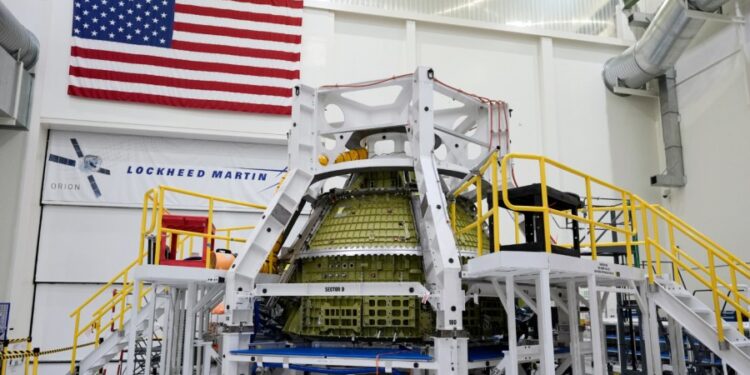
President Donald Trump’s second inaugural address was filled with equal parts soaring rhetoric about the future and snarky condemnation of his predecessor. An example of the former concerned the president’s space policy.
“And we will pursue our manifest destiny into the stars, launching American astronauts to plant the Stars and Stripes on the planet Mars.”
The sentence was conspicuous for its lack of mention of the moon. The Artemis program, which Trump initiated during his first term, was quite clear that humans would be returning to the moon first, before going to Mars.
However, SpaceX’s Elon Musk is now one of the president’s closest advisors. Musk has made no secret of his desire to establish a settlement on Mars. He has even claimed that he can send the first people there in 2028. That assertion has, no doubt, excited the imagination of the president, hence his statement about putting the American flag on the Red Planet.
So, is NASA still going to the moon, or is the Trump administration preparing to abandon the moon and send astronauts straight to Mars?
Trump’s pledge to go to Mars without mentioning the moon has caused some head-scratching and even consternation in the media. A story in Phys.org notes that Musk has posted on X, “We’re going straight to Mars. The moon is a distraction.”
The story also says that Congress probably won’t be pleased by such a pivot: “It is also likely to meet stiff opposition in the U.S. Congress, where both Republicans and Democrats have an interest in preserving jobs in their constituencies linked to exploring the moon.”
It’s not just about jobs in the district. We’ve noted before the folly of a sudden lurch toward Mars, bypassing the moon. Such a direction-change would forego the immediate scientific and economic benefits a return to the moon would yield. It would also risk national humiliation, should the Chinese achieve their promised crewed moon landing by 2030.
America is unlikely to achieve a crewed Mars landing by the end of Trump’s second term. However, NASA has an excellent chance of putting boots on the lunar surface by 2028. America would get the political win. Trump would get his share of the glory.
Thus far, the space agency has not shown any indications of a pivot away from the moon and toward Mars. NASA recently issued some study contracts to facilitate the logistics of lunar operations in the 2030s to companies like Intuitive Machines and Blue Origin.
The Commercial Lunar Payload Services program is proceeding apace with the Firefly mission on its way to the moon and a second Intuitive Machines flight scheduled for launch in late February. Artemis II is still on track for mid-2026 and Artemis III, the next moon landing, for a year later.
Naturally, everything is subject to change. I’ve noted before that the Trump transition team is considering, among other changes, going back to the moon and going to Mars simultaneously, basically having boots on both the lunar surface and on Mars by 2028, the last year of the second Trump administration. Whether such a two-track exploration program is even possible given both technical and fiscal realities is doubtful.
The question is, when will the new exploration policy be revealed?
Trump has officially nominated Jared Isaacman, the billionaire private astronaut, to become NASA administrator, a brilliant, outside-the-box decision. Isaacman will have to be confirmed after hearings before the Senate Commerce, Science and Technology Committee, chaired by Sen Ted Cruz (R-Texas).
Those hearings will be a perfect opportunity to air what the Trump policy for space exploration will be. Just as important, it will be a venue for Congress to express its reaction to that policy.
If Trump proposes to start a two-track exploration program, certain policy changes and costs will be associated with such a change. Will Congress go along with such a change? We’ll see.
The other factor that will affect space policy going forward will be the successful launch of the Blue Origin New Glenn. Eric Berger at Ars Technica noted that Musk and Blue Origin CEO Jeff Bezos have developed a truce from their space rivalry, both seeking favor from Trump.
Berger ends his article thus: “Musk is interested in Mars, and Bezos is more fixated on the Moon. Ultimately, Trump may tell them both to follow their hearts, with the U.S. government coming along for the ride.”
Wouldn’t that be something?
Mark R. Whittington is the author of “Why is It So Hard to Go Back to the Moon?” as well as “The Moon, Mars and Beyond” and, most recently, “Why is America Going Back to the Moon?” He blogs at Curmudgeons Corner.







